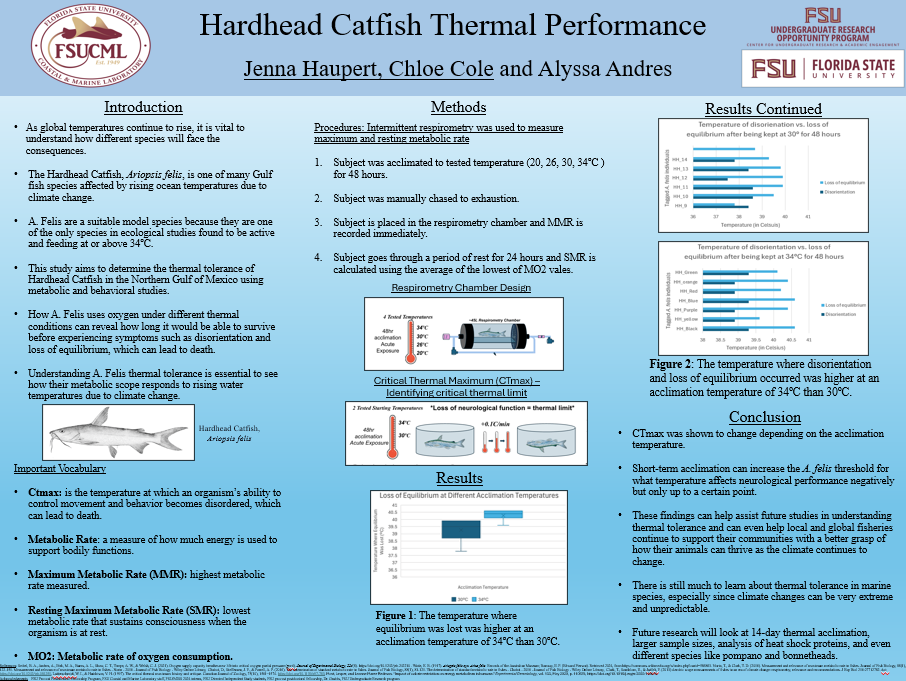Research Symposium
25th annual Undergraduate Research Symposium, April 1, 2025
Chloe Cole Poster Session 1: 9:30 am - 10:30 am / Poster #154

BIO
My name is Chloe Cole and I am an Environmental Science major with a longstanding passion for conservation. I plan use the knowledge I have gained on my project regarding the energetic performance of the Hardhead Catfish in my future career. My goal is to work in a field where I can advocate for and help protect a wide range of ecosystems, with a particular focus on coastal and marine habitats. I am involved in other environmental oriented groups on campus such as FAEP and ESP. I strive to make the most of my time here at Florida State University in order to ensure that my goals of habitat preservation and sustainability advocacy can be met, and to make a difference in the field of Environmental Science.
Hardhead Catfish Thermal Performance
Authors: Chloe Cole, Alyssa AndresStudent Major: Environmental Science
Mentor: Alyssa Andres
Mentor's Department: Florida State University Coastal and Marine Laboratory Mentor's College: Arts and Sciences Co-Presenters: Jenna Haupert
Abstract
The Hardhead Catfish (A. felis) is one of many Gulf Coast fish species that is subject to rising ocean temperatures as a result of climate change. Ariopsis felis is a bony fish species that is known to occupy habitats such as estuaries and other coastal regions. The Hardhead Catfish is known to demonstrate significant thermal tolerance in ecological surveys. One way to learn more about their thermal tolerance is to observe and quantify thermal tolerance and sensitivity. Subjects were exposed to two distinct thermal challenges; exhaustive exercise and CTmax (critical thermal maximum) trials across a range of acclimation temperatures (20, 26, 30, 34 °C). Using respirometry to determine oxygen consumption from resting to maximum energy, we were able to calculate aerobic energetic scope (AS) and how this measure of energy budget changes. Additionally, behavioral observations like disorientation and loss of equilibrium occur under increasing temperature allowing us to determine a critical limiting upper temperature where survival is compromised. All metabolic rates in A. felis increase with temperature at different rates, owing to different temperature sensitivity across activity and lead to changes in aerobic scope with increased temperature. Further, through our experimental observations we found that while the Hardhead Catfish may be tolerant of high temperatures, rising average temperatures and the increasing presence of marine heatwaves will likely alter population energy budgets, that may influence movement, viable habitat, and habitat use. This research can be used to add predictability to species and ecosystem dynamics models in an era of climate change.
Keywords: Fish, Temperature, Energy

